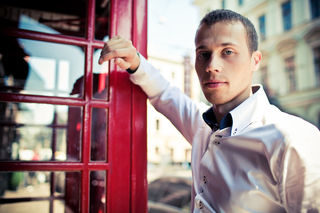Trust
Which Accent Do We Trust Most (and Find Sexiest)?
... and how does one voice come to dominate almost all others?
Posted December 13, 2015

A recent poll asked 11,000 people from all over the world to name which foreign accent was the sexiest. In second place, with 8.7% of the vote, was the American accent, followed closely by the Irish accent with 8.1%, and the Australian accent with 8%.
The resounding winner? The British accent, with 27% of the vote. But did we really need a poll to tell us that?
Here in the U.S., a series of Viagra commercials feature attractive women with British accents explaining that “half of men over 40 have some form of erectile dysfunction." The women then walk in slow motion to a mirror where they sit and brush their hair. Since the vast majority of Viagra-using American men are unlikely to meet a British woman or watch her brush her hair in slow motion, these ads are a good indication of something else—our cultural fascination with the British accent.
American films and television shows dominate world culture but surprisingly, American accents do not. Indeed, when American actors play historical or fantasy roles in Hollywood productions they almost always do so with a British accent (e.g., Brad Pitt in Troy)—and often a pretty bad one (e.g., Brad Pitt in Troy).
Why?
The English language didn’t even exist in the time of Troy, yet many audience members would consider it "incorrect" or even distracting if a film depicting the era of the Egyptian, Roman, or Greek empires had American actors speak with an American accent.
But the mysterious powers of the British accent extend far beyond Hollywood: In a recent study, participants listened to one of three versions of a taped interaction between a customer and a bank employee. The only difference between the versions was the accent of the employee, which was either Indian, American, or British. Results found that participants rated their customer satisfaction as significantly higher when the employee had a British accent—despite the interactions following identical scripts.
Another study found that the British accent was rated as more credible than the local accent in commercials—and that a British accent even increased customers’ intention to purchase the product in question. (The impact of slow-motion hair-brushing on intent-to-purchase was not evaluated.)
A few years ago I called a five-star hotel in Boston and was surprised to hear a crisp British accent on their recorded answering menu even though no hotel employee I met was British. Is it wise to have your automated message sound like Judi Dench when your actual employees speak more like Judy Tenuta?
In the service of full disclosure, I myself have a vaguely British accent. I recently gave a TED Talk that went viral and led to a flood of emails from people all over the world—the majority of which were comments and questions about my accent, rather than the actual content of the talk.
In short, while we find British accents sexy and alluring, they also convey credibility, sophistication, and competence. The question is, Does the dominance of British accents in American media reflect an existing and ingrained affection for British accents or is it actually creating it?
I welcome readers to weigh in with their thoughts. Cheerio!
- Want to beef up your emotional health? Check out Emotional First Aid: Healing Rejection, Guilt, Failure and Other Everyday Hurts (Plume, 2014).
- Watch my TED Talk and learn about my own struggles with emotional health.
- Join my email list
- Visit my website and follow me on Twitter @GuyWinch
Copyright 2015 Guy Winch


